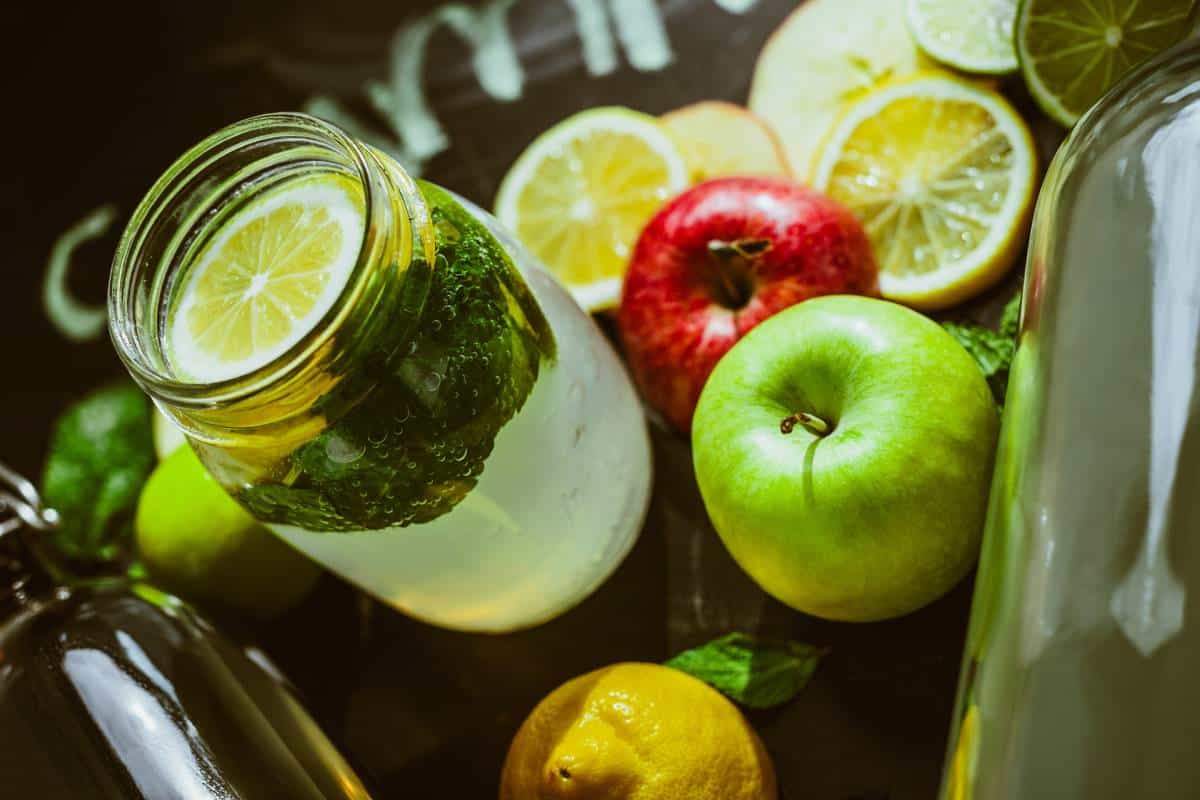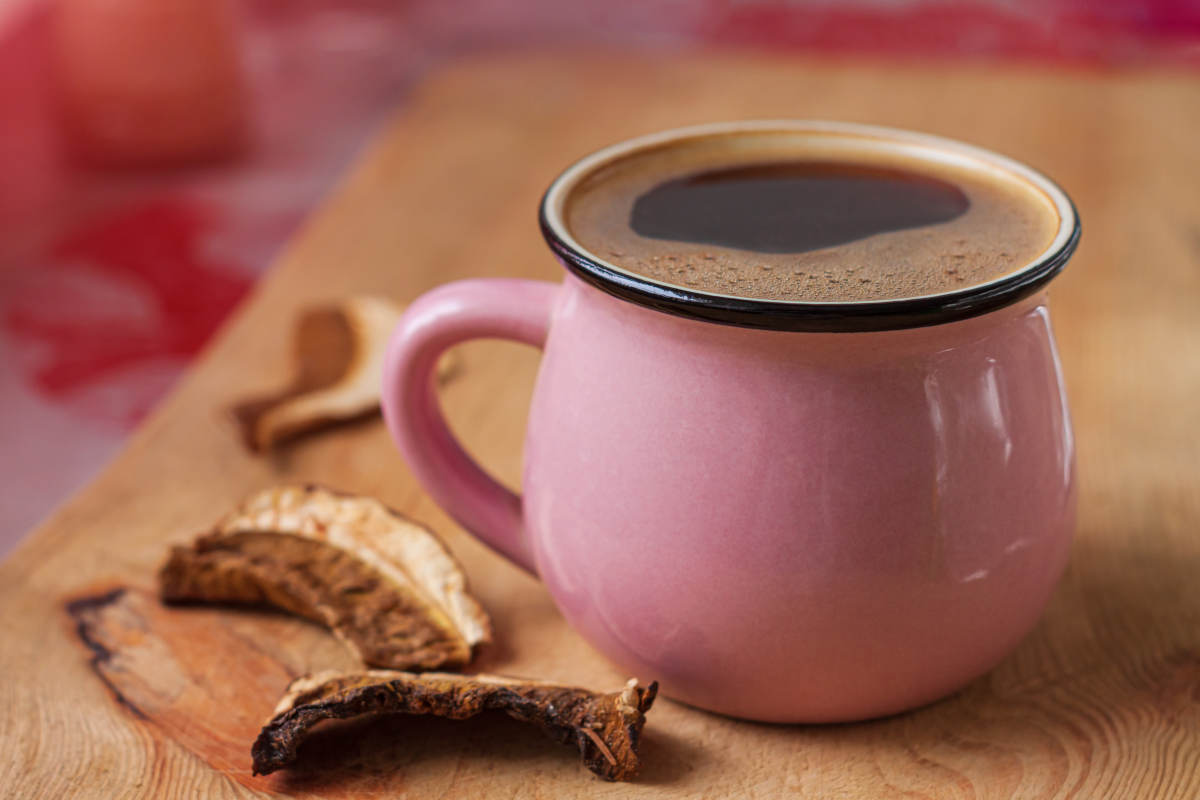Caffeine consumption is a common part of many people’s daily routines. However, the growing awareness of its potential side effects has led many to seek caffeine-free coffee alternatives. Reducing caffeine intake can bring significant health benefits, including:
- Improved sleep quality
- Reduced anxiety levels
- Decreased heart palpitations
Various options are available for those looking to cut back on caffeine while still enjoying a warm beverage. Here are some popular caffeine-free coffee alternatives and substitutes that can satisfy your cravings:
- Herbal teas: Diverse flavors, from soothing chamomile to invigorating peppermint.
- Chicory coffee: A rich, earthy brew made from roasted chicory root.
- Dandelion coffee: Offers a similar taste profile to regular coffee while being packed with antioxidants.
- Mushroom coffee: Combines coffee beans with medicinal mushrooms for added health benefits.
- Golden milk lattes: A soothing blend of turmeric, ginger, and milk that delivers anti-inflammatory properties.
Understanding Caffeine and Its Effects
Caffeine plays a significant role in the body by stimulating the central nervous system. It enhances alertness and reduces fatigue, making it popular among those seeking an energy boost. However, its effects can vary greatly depending on individual sensitivity.
Common Side Effects of Excessive Caffeine Consumption
- Anxiety: High doses can lead to increased feelings of anxiety or panic.
- Jitters: Some experience physical symptoms such as shaking or restlessness.
- Insomnia: Disruption of sleep patterns is common, particularly when consumed later in the day.
Benefits of Reducing Caffeine Intake
Reducing caffeine intake can lead to several health improvements:
- Better Sleep Quality: Without caffeine, you may find it easier to fall asleep and enjoy deeper rest.
- Reduced Anxiety Levels: Lower consumption can help mitigate feelings of stress and tension.
- Improved Digestion: Some individuals report enhanced digestive health when avoiding caffeine.
The Best Caffeine-Free Coffee Alternatives
1. Herbal Teas
Herbal teas provide a delicious and diverse range of flavors, making them an excellent choice for those seeking the best caffeine-free coffee alternatives. Unlike traditional teas, herbal options are made from various plants, herbs, and spices, ensuring a unique experience with every cup.
2. Peppermint Tea
This refreshing tea is known for its soothing properties. The menthol in peppermint helps relax muscles, aiding digestion and reducing bloating. Its aroma can enhance focus, making it a perfect choice for morning or afternoon enjoyment.
3. Ginseng Tea
Ginseng tea stands out as an energizing option without the jitters commonly associated with caffeine. This adaptogenic herb is celebrated for its ability to boost energy levels naturally while supporting mental performance. Ideal for those needing a pick-me-up without the crash of coffee, ginseng tea offers sustained alertness throughout the day.
4. Rooibos Tea
Rooibos tea hails from South Africa and is renowned for its rich antioxidant content. Packed with polyphenols, rooibos promotes heart health and fights inflammation. Its naturally sweet flavor profile makes it a delightful alternative to coffee, providing warmth and comfort without stimulating effects.
Incorporating herbal teas into your daily routine can lead to significant health benefits while still satisfying your craving for a warm beverage. Each type brings distinct flavors and properties that cater to different preferences and needs, allowing you to enjoy a caffeine-free lifestyle without sacrificing taste or enjoyment. Consider exploring these options as part of your journey toward healthier choices in beverages.
5. Chicory Coffee
Chicory coffee is a popular caffeine-free coffee substitute made from the roasted roots of the chicory plant. This alternative boasts a rich, earthy flavor that closely resembles traditional coffee, making it a favorite among those seeking to cut back on caffeine.
Flavor Profile
- Nutty and slightly bitter: Chicory coffee provides a complex taste that many find enjoyable.
- Smooth finish: It lacks the acidity often associated with regular coffee.
Health Benefits
- Prebiotic Inulin: Chicory root is rich in inulin, a type of fiber that promotes gut health by feeding beneficial bacteria.
- Antioxidants: Contains antioxidants that can help reduce inflammation and support overall well-being.
6. Dandelion Coffee
Dandelion coffee, made from roasted dandelion roots, offers a rich, earthy flavor reminiscent of traditional coffee. The preparation process involves cleaning the dandelion roots, roasting them until they reach a deep brown color, and then brewing them like regular coffee grounds.
Health benefits of dandelion coffee include:
- Antioxidants: Packed with compounds that combat oxidative stress.
- Liver Support: Promotes liver health by aiding detoxification processes.
- Digestive Aid: Acts as a mild diuretic, supporting digestion and reducing bloating.
7. Mushroom Coffee
Mushroom coffee is a unique blend of traditional coffee beans and medicinal mushrooms, offering a distinct flavor. This caffeine-free alternative combines the rich taste of coffee with the health benefits of various mushrooms, such as:
- Chaga: Known for its antioxidant properties.
- Lion’s Mane: Supports cognitive function and memory.
- Cordyceps: Enhances energy levels and athletic performance.
The potential health benefits of mushroom coffee include:
- Stress Reduction: Adaptogenic properties help the body manage stress effectively.
- Cognitive Function: Certain mushrooms can enhance mental clarity and focus.
8. Golden Milk Lattes
Golden milk lattes, a vibrant turmeric drink, are among the best caffeine-free coffee alternatives. This comforting beverage combines several health-promoting ingredients:
- Turmeric: The star of the drink, known for its anti-inflammatory properties.
- Ginger: Adds warmth and aids digestion.
- Black pepper: Enhances turmeric absorption, maximizing benefits.
- Milk or plant-based alternatives: Provides creaminess and flavor.
Preparation
- Heat your choice of milk in a saucepan.
- Whisk in turmeric, ginger, and black pepper until well combined.
- Sweeten with honey or maple syrup as desired.
The golden color is not just visually appealing; it signals a host of health benefits. Turmeric’s active compound, curcumin, is linked to reduced inflammation and improved joint health.
9. Hot Cocoa
Hot cocoa stands out as one of the best caffeine-free coffee alternatives. This delightful beverage not only satisfies your sweet tooth but also offers several nutritional benefits:
- Rich in Antioxidants: Hot cocoa contains flavonoids, which can help combat oxidative stress in the body.
- Low Caffeine Content: With approximately 5 mg of caffeine per cup, it provides a gentle energy boost without the jitters associated with higher-caffeine beverages.
The combination of cocoa powder and milk creates a creamy texture that is comforting and enjoyable. For an extra health kick, consider adding spices like cinnamon or nutmeg. These not only enhance flavor but also add health benefits.
Exploring Other Caffeine-Free Beverages
Kombucha
Kombucha is a popular choice among other caffeine-free beverages, known for its unique taste and health benefits. This fermented drink is made from sweetened tea that has been fermented by a symbiotic culture of bacteria and yeast (SCOBY). The result is a fizzy, tangy beverage packed with probiotics, which can positively impact gut health.
Benefits of Kombucha:
- Probiotic-Rich: Kombucha contains live cultures that support digestive health. These beneficial bacteria help maintain a balanced gut microbiome, which can enhance nutrient absorption and strengthen the immune system.
- Antioxidant Properties: The tea used in kombucha, typically black or green tea, contributes antioxidants that combat oxidative stress in the body. Antioxidants are crucial for fighting free radicals, potentially lowering the risk of chronic diseases.
- Detoxification Support: Kombucha contains glucuronic acid, which aids in detoxification by helping to eliminate toxins from the body. Regular consumption may assist liver function and promote overall well-being.
- Energy Boost without Caffeine: While kombucha is made with tea, the fermentation process significantly reduces its caffeine content. You can enjoy the refreshing fizz and flavor without the jitters associated with coffee.
- Variety of Flavors: Kombucha comes in numerous flavors due to the addition of fruits, herbs, and spices during fermentation. Popular options include ginger-lemon, raspberry-lime, and hibiscus. This variety makes it easy to find a version that suits your taste preferences.
How to Incorporate Kombucha into Your Diet
- As a Refreshing Drink: Enjoy kombucha chilled on its own as a refreshing alternative to soda or sugary drinks. It offers a satisfying fizziness without added sugars or caffeine.
- In Smoothies: Use kombucha as a base for smoothies instead of water or juice. It adds an extra layer of flavor while providing beneficial probiotics.
- With Meals: Pair kombucha with meals to aid digestion and enhance your dining experience. Its tangy flavor complements many dishes, particularly those rich in protein or heavy on spices.
Lemon Water
Lemon water is a refreshing and hydrating alternative to traditional coffee. This simple beverage offers numerous benefits that make it an excellent choice for those seeking caffeine-free beverages.
Benefits of lemon water include:
- Hydration: Staying hydrated is essential for maintaining energy levels and overall health. Lemon water encourages increased water intake, which can help replace the dehydrating effects of caffeine.
- Vitamin C Boost: Lemons are rich in vitamin C, supporting immune function, collagen synthesis, and neurotransmitter production. This nutrient also acts as an antioxidant, helping to combat oxidative stress in the body.
- Digestive Aid: The acidity of lemon juice may stimulate gastric juices, aiding digestion and promoting a healthy gut.
Compared to kombucha, known for its probiotic-rich drinks, lemon water is simpler to prepare and enjoy. While kombucha provides the benefits of fermentation and probiotics, lemon water focuses on hydration and essential nutrients without the complexities of brewing.
Incorporating lemon water into your daily routine can complement other caffeine-free alternatives effectively. It’s a straightforward yet powerful way to enhance your health while reducing caffeine intake.
Bone Broth
Bone broth is a nutritious drink that has gained popularity as a caffeine-free alternative to coffee. Rich in vitamins, minerals, and collagen, it provides a savory option for those looking to reduce their caffeine intake.
Benefits of Bone Broth:
- Nutritional Powerhouse: Contains essential nutrients like calcium, magnesium, and potassium.
- Gut Health Support: Offers gut-healing properties due to its gelatin content, which can help improve digestion.
- Hydration: Serves as an excellent source of hydration while providing warmth and comfort.
Unlike other caffeine-free beverages such as herbal teas or kombucha, bone broth stands out for its unique flavor profile and health benefits. It’s warm and hearty taste makes it an inviting choice during colder months or when you crave something comforting.
Incorporating bone broth into your diet can be simple:
- Consume it as a warm drink.
- Use it in soups or stews.
- Add it to sauces for extra flavor.
Yerba Mate and Green Tea
Yerba mate and green tea stand out as popular alternatives to coffee, each offering unique health benefits.
Yerba Mate
- Origin: Traditional South American beverage made from the leaves of the Ilex paraguariensis tree.
- Caffeine Content: Contains about 70-85 mg of caffeine per 8 oz serving, significantly less than coffee, which typically has 95-200 mg.
Benefits:
- Provides a smooth, sustained energy boost without the jitters often associated with coffee.
- Rich in antioxidants and anti-inflammatory compounds.
- Improves mental clarity and focus.
Green Tea
- Health Benefits: Known for its numerous health properties, including:
- High in catechins, particularly EGCG, which are potent antioxidants.
- May aid in weight management and enhance metabolic rate.
- Studies suggest potential protective effects against neurodegenerative diseases.
- Caffeine Content: Contains approximately 29.4 mg of caffeine per cup, offering a gentler energy lift compared to yerba mate and coffee.
Tips for Transitioning from Coffee to Alternatives
Switching from coffee can seem daunting, but with a few practical strategies, you can make the process smoother. Here are effective tips for reducing caffeine intake:
1. Gradual Reduction
- Start by mixing your regular coffee with your chosen caffeine-free alternative.
- Gradually increase the ratio of alternatives over time.
2. Stay Hydrated
- Drink plenty of water throughout the day.
- Staying hydrated helps mitigate withdrawal symptoms such as headaches and fatigue.
3. Explore Flavor Profiles
- Experiment with different herbal teas, chicory coffee, or mushroom blends to find flavors you enjoy.
- Consider adding spices or natural sweeteners to enhance taste.
4. Mind Your Routine
- Identify when you typically crave coffee and replace that moment with an alternative beverage.
- Create new rituals around your chosen drinks, such as having a warm cup of herbal tea in the morning.
5. Listen to Your Body
- Pay attention to how your body reacts during the transition.
- Adjust your approach based on your energy levels and cravings.
Transitioning from coffee to alternatives is not just about cutting back; it’s about discovering new flavors and routines that work for you.
FAQs
What are some of the best caffeine-free coffee alternatives?
Some of the best caffeine-free coffee alternatives include herbal teas like peppermint, ginseng, and rooibos tea, as well as chicory coffee, dandelion coffee, mushroom coffee, golden milk lattes, and hot cocoa.
What are the health benefits of reducing caffeine intake?
Reducing caffeine intake can lead to decreased anxiety and jitters, improved sleep quality, better digestion, and overall enhanced well-being. It can also help individuals who are sensitive to caffeine manage their symptoms more effectively.
How is chicory coffee made and what are its benefits?
Chicory coffee is made from roasted chicory root, which can be brewed similarly to regular coffee. Its flavor profile is nutty and earthy. Chicory coffee contains prebiotic inulin that supports gut health and may aid in digestion.
Can you explain the benefits of mushroom coffee?
Mushroom coffee combines traditional coffee with medicinal mushrooms like lion’s mane or chaga. It offers potential health benefits such as stress reduction, enhanced cognitive function, and immune support without the jitters associated with regular coffee.
What ingredients are typically used in golden milk lattes?
Golden milk lattes typically include turmeric, coconut or almond milk, black pepper (to enhance turmeric absorption), and sweeteners like honey or maple syrup. This drink is known for its anti-inflammatory properties and overall health benefits.
What other caffeine-free beverages can I try besides herbal teas?
In addition to herbal teas, you can explore other caffeine-free beverages such as kombucha for its probiotic benefits, lemon water for hydration, bone broth for nutrition, and even low-caffeine options like yerba mate or green tea.













